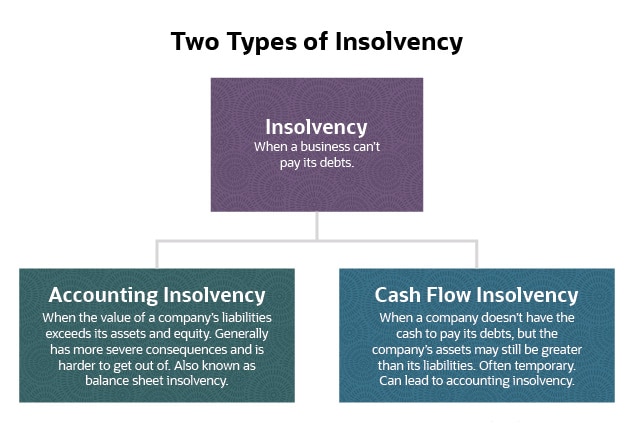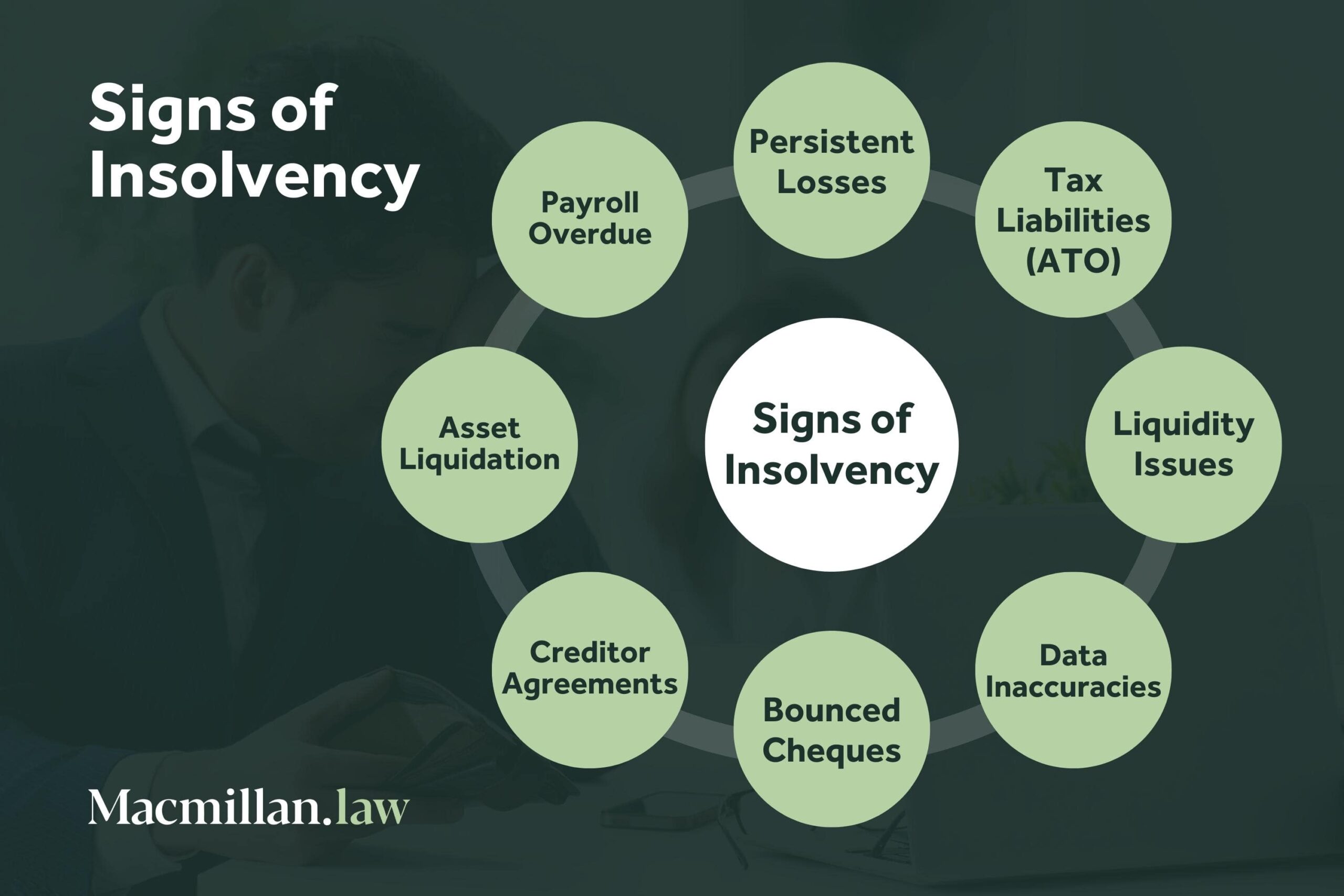The Greatest Guide To Insolvency Practitioner
The Greatest Guide To Insolvency Practitioner
Blog Article
Get This Report about Insolvency Practitioner
Table of ContentsSee This Report on Insolvency PractitionerFacts About Insolvency Practitioner Revealed4 Simple Techniques For Insolvency PractitionerLittle Known Facts About Insolvency Practitioner.Little Known Facts About Insolvency Practitioner.The 10-Minute Rule for Insolvency PractitionerThe Ultimate Guide To Insolvency Practitioner
Bankruptcy is when responsibilities are higher than the worth of the business, or when a debtor can not pay the financial obligations they owe. A company can end up being insolvent because of a number of situations that result in inadequate cash circulation. When confronted with bankruptcy, a company or person can get in touch with financial institutions directly and restructure financial obligations to pay them off.
Bankruptcy can result in insolvency proceedings, in which lawsuit will be taken against the insolvent person or entity, and assets. Insolvency Practitioner may be liquidated to settle outstanding financial debts. Company owner may contact lenders straight and restructure financial obligations right into even more workable installations. Financial institutions are typically open to this method because they desire to be settled and avoid losses, also if the settlement gets on a postponed routine.
The owner produces a proposition outlining just how the financial obligation may be reorganized using price decreases or other prepare for assistance. The proposition shows financial institutions exactly how business may generate enough money circulation for rewarding procedures while paying its debts. Usually, a forgiven financial debt might be taken into consideration income by the Irs (INTERNAL REVENUE SERVICE).
The Single Strategy To Use For Insolvency Practitioner
When a business needs to pay enhanced rates for items and solutions, the company passes along the price to the consumer. As opposed to pay the increased expense, several consumers take their business in other places so they can pay much less for a product and services. Losing customers results in shedding income for paying the business's creditors.
Business might wind up paying large amounts of cash in problems and be incapable to proceed procedures. When procedures stop, so does the firm's earnings. Lack of income results in unpaid bills and creditors asking for cash owed to them. Some business end up being insolvent since their products or services do not evolve to fit consumers' transforming requirements.
Rumored Buzz on Insolvency Practitioner
Expenses exceed incomes and costs stay overdue. Sorts of insolvency consist of cash-flow insolvency and balance-sheet bankruptcy. Cash-flow insolvency happens when a firm has the possessions to cover their debts but they are in the incorrect form, such as real estate rather than fluid funds. Balance-sheet insolvency, on the various other hand, indicates a lack of properties in any type of type to cover financial debts.
The internal revenue service states that a person is bankrupt when the overall obligations exceed complete possessions. Insolvency Practitioner. A insolvency, on the other hand, is a real court order that shows exactly how an insolvent individual or company will certainly pay off their creditors, or exactly how they will offer their properties in order to make the repayments
Insolvency Practitioner Fundamentals Explained
When a business or individual is financially troubled, they can not satisfy their financial commitments. Insolvency is not the same as personal bankruptcy, although a company that has actually become insolvent may file for personal bankruptcy. Insolvency is the state of not being able to pay your responsibilities while bankruptcy is a lawful procedure to release your financial debts.
Comprehending the elements that can bring about insolvency, such as overspending, can aid you prevent insolvency and its repercussions.
The Single Strategy To Use For Insolvency Practitioner
It is popular that directors and policemans of firms (and supervisors of restricted obligation firms) owe fiduciary duties to their organizations and their shareholders (or participants). These fiduciary obligations are specified by state laws and, though there are variants from one state to another, they generally include a duty of loyalty and a responsibility of treatment.
The obligation of care needs directors and policemans to exercise diligence, to make educated choices, try this website and to act in good confidence so that their actions are in the very best passion of the firm. Beyond the scope of this conversation, some states enable these obligations to be limited either by so keeping in mind in the organizational papers or abiding with various other demands.
All about Insolvency Practitioner

Beware regarding providing investors advantageous therapy at the cost of lenders (e.g., authorizing and funding a dividend or a stock redemption). Be mindful concerning special treatment between classes of shareholders. Clear up efforts to learn all the facts prior to taking a specific strategy; directors need to truly think that any kind of choices made are in the most effective passions of the company in its totality (i.e., decisions will be examined in hindsight because of the result of such activities on the company).
In any type of bankruptcy or bankruptcy case, payments made to certain financial institutions at the cost of other financial institutions can be clawed back, specifically if there is some connection in between the firm and the financial institution. Think about recommending at a yearly shareholder meeting (or any type of other conference of investors) a resolution verifying that all prior company choices and actions taken by the supervisors and officers of the firm were absorbed good confidence after an exercise of affordable care.
The Greatest Guide To Insolvency Practitioner
Completely disclose any individual or organization connections with events beyond of transactions entailing the company to stay clear of the look of a dispute of passion. In assessing possible fund elevating purchases or a sale visite site of properties of the distressed company, be mindful that these transactions may be inspected later in light of any type of succeeding growth of supervisors' fiduciary duties to consist of financial institutions.
Report this page